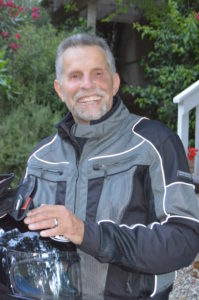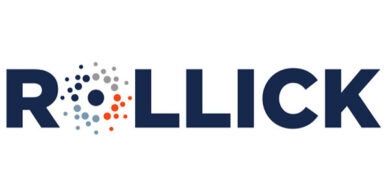Performance and Profitability: I Should Have Been Doing That All Along
By Mark Mooney
All right, class, today’s study focus will be a look at the practices that help make your business more profitable, and therefore more valuable over the long run. I expect you all to take notes, as there will be a quiz. Please open your book and turn to the chapter entitled “I Should Have Been Doing That All Along.”
Sooner or later, all businesses (yes, yours) are sold, inherited, or just plain go away. That’s the nature of all businesses. You can look out over the retail landscape today and see plenty of examples.
Stable commerce resulting in profitability over the years shapes the value of a business; so the more profitable you are over time, the more your business will be worth to a potential buyer – pretty simple. So, class, here’s your first cautionary note (write this down in big letters): Hard work alone will not translate to a great selling price. Hard work alone will not ensure a business value that you, your family, or that potential buyer is good with. You’ve got to be consistently profitable over time to accomplish this.
I was recently involved with the purchase of a large multi-line dealership. I was working with the potential buyer during their due diligence phase. This was an old family dealership that had been around for years, with substantial yearly gross sales. But here’s the kick: The profitability wasn’t there to make the dealership worth the asking price. Who cares what the gross sales are if you’re not making money at the end of the day? Without profitability, you are just selling assets.
For those in this boat, what then happens is that the seller, to justify the selling price, starts going into the “potential” of all great things the buyer could do. Now the buyer is seeing red flags. Why wasn’t the seller doing this already over the years? And, by the way, if you’re attempting to sell and the SBA is going to be involved with a buyer’s loan, profitability is a necessity, not an option. Back to the chalkboard.
Why am I bringing all this stuff up? It’s human nature to ponder the “what ifs” and the “what I should have been doing” down the road. Hindsight is 20/20. But the fact is, if you’re not doing it now, it will come back around and cost you at some point. It could be soon, or years down the line. And years catch up with you much faster than you think. As you move forward, be proactive! You don’t want to be the one standing there saying “uh oh” down the line. Remember, you will absolutely be graded on your participation.
I was studying a few OPE metrics, and it would appear that the majority of business owners in the power equipment industry are over the age of 60, with a lot of 50-year-olds creeping upward as well. I just listened to a lecture by someone who retired at the springtime age of 92, so you might have another 40 or so years to go before you start thinking about passing on your business. You may sell, you may pass it on via inheritance, or you may simply shut the doors. But think about this: The time to start thinking about the philosophies that shape your dealership and the practices that drive your dealership is now. Why? So that tomorrow will bring you what you want. There’s nothing wrong with being rewarded at the end of the day, or at the end of a career. As students of life, we all want A’s, but getting them is not always easy.
If you’re thinking about selling in the future, do you have the financials that make your business worth something to someone else? The longer your business is profitable over time, the greater the multiplier can be for calculating business worth, and your blue sky will be a lot bluer, too.
Are you actually profitable, or are you merely selling the potential of profitability to a prospective buyer? You can’t always judge a book by its cover, but after you open it, it’s either a good read or not. You know what your financials look like, and what they say about you. If they don’t read like you want them to, here are some tips to scribble in your notebooks to improve them.
Consistency in practices is a must. But here’s the rub, class; you can have all the practices and processes in the world, but they won’t work if you don’t have the team to implement them. Processes don’t make the people work; people make the processes work. The greatest investment you can make in your higher earnings is your team. Make no mistake, the better the folks in your employ, the better you’re going to be. It’s simple – hire and train well.
Here’s a homework assignment for you. Read the “Human Sigma, Managing the Customer-Employee Encounter,” by Jim Asplund and John H. Fleming. Remember, it’s all about the folks that you employ and how they interact with your customers. The greater the interaction between all parties, the greater your retail sales will be. That’s the truth.
If you went to your personnel files right now, would you find a signed employee job description for every team member that includes performance standards and accountability expectations? The level of expectations defines the quality of an organization. People will not figure it out by osmosis – you must be clear. You can’t blame for what hasn’t been explained. Monitor and manage.
If you’re a family business, do you have plans for succession? Nothing is more uncomfortable than a lot of relatives arguing about who’s going to be doing what. Be clear early on regarding duties, education, and direction of family members if succession is your plan. Having skin in the game always makes the game more serious.
Finally, before the class bell rings for this last time, think about this. Perhaps at the end of the day you just want to say “goodbye” – no sale to anyone, no pass down to family members, just close the book after the last chapter. That’s okay, too.
The greatest single thing we can give ourselves and others is happiness and a feeling of wellbeing. My business did a lot of that for me and others, and I was good with that at the end of the day. You should be as well, it’s a great accomplishment! You get an A.
 Mark Mooney is a former dealer principal of a multi-line metric dealership with annual sales in excess of $10 million. He has partnered and works with many major OEMs to provide dealership consultation and sales training for their dealer bodies. He has delivered keynote speeches for OEMs, taught numerous classes on dealership management, trained sales teams throughout the United States, and improved bottom lines. For more information, visit http://www.markmooneypowersportsconsulting.com
Mark Mooney is a former dealer principal of a multi-line metric dealership with annual sales in excess of $10 million. He has partnered and works with many major OEMs to provide dealership consultation and sales training for their dealer bodies. He has delivered keynote speeches for OEMs, taught numerous classes on dealership management, trained sales teams throughout the United States, and improved bottom lines. For more information, visit http://www.markmooneypowersportsconsulting.com

